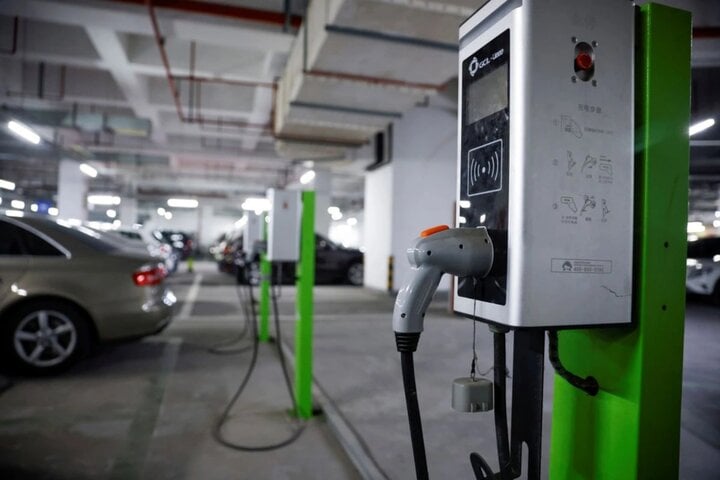Empty apartments without charging stations
According to the Los Angeles Times, before constructing a $350 million residential building in downtown Los Angeles, project director Hamid Behdad had to compromise with last-minute demands from planning committee members.

Charging stations are no longer just amenities, but a “necessity” to attract and retain tenants.
As a result, he had to quadruple the number of electric vehicle charging stations in the residential tower. Though he agreed to the plan, Hamid Behdad believed it was an “excessive requirement.”
Now that the Broadway Tower is completed and attracting buyers, Hamid Behdad admits he is glad that the planning committee forced the project to install charging stations in over 20% of the building’s parking spots.
“Without these 90 charging stations, we would have a real hard time selling the units here,” says Hamid Behdad.
In many cities in the United States, developers of apartment projects are rushing to install charging stations to avoid business disruptions.
With the increasing demand from buyers and renters, projects with ample charging stations are preferred. Buildings without these amenities are at risk of being empty.
Jackie Impellitier, Executive Vice President of ZRS Management, revealed that the company, which manages 76,000 units, is urgently installing level 2 electric vehicle chargers in garage areas.
These are pay stations that can fully charge an electric car in about 3-8 hours. The charging costs will be added to the tenant’s electricity bill.
Jackie Impellitier acknowledges that charging stations are no longer just amenities, but a “necessity” to attract and retain tenants. Investors will lose tenants unless they provide easy and convenient charging services.
According to Jackie Impellitier, five years ago, most developers did not view electric vehicle users as a potential group of tenants.
At that time, there were only a few electric vehicle models on the market. However, the situation has changed dramatically as almost all car manufacturers around the world have launched electric vehicles.
In Toronto and Vancouver (Canada), an increasing number of homebuyers are looking for properties with electric vehicle charging facilities. According to statistics from 2020 and 2021, the annual growth rate for condominiums equipped with electric vehicle charging stations in Toronto and Vancouver is about 15%-16%.
Office and commercial real estate projects competing to install charging stations
In many office and commercial real estate projects worldwide, electric vehicle charging stations are becoming a decisive factor for development. More and more businesses are using electric vehicles in their operations.

The availability of charging infrastructure has become an important criterion in determining where businesses open branches and operate. According to a survey by ChargePoint, 90% of surveyed property managers said that access to charging infrastructure is a key consideration when evaluating potential locations for business operations.
According to the Los Angeles Times, retail giant 7-Eleven recently revealed plans to build a large-scale fast charging network.












